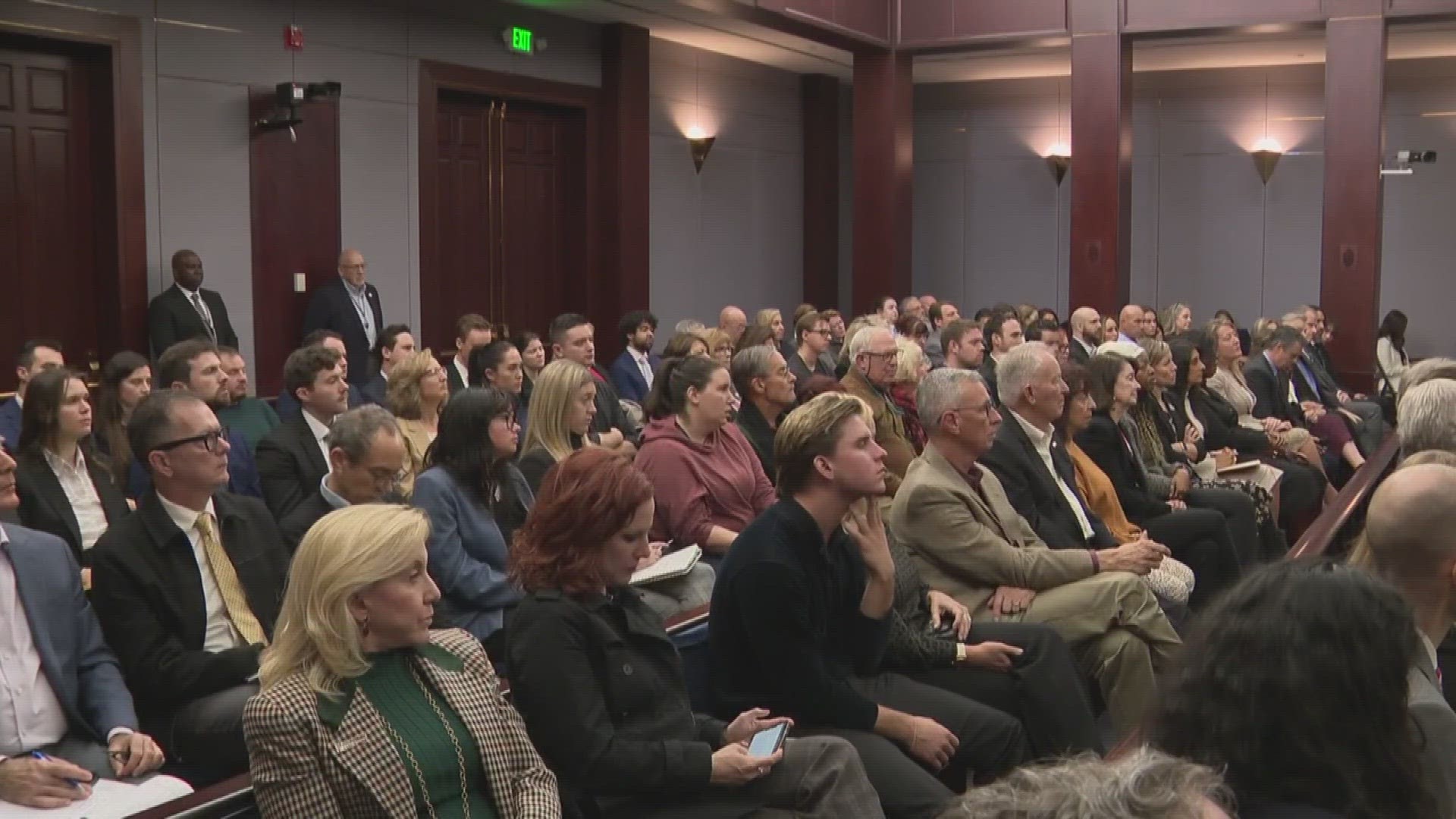PHOENIX — A landmark abortion case goes before the Arizona Supreme Court on Tuesday.
At stake: whether women in Arizona have a right to an abortion - or not.
Arguments begin at 9:30 a.m. Tuesday. Each side will get 30 minutes. The livestream will be available here.
Here's what you need to know:
VERSIÓN EN ESPAÑOL: Corte Suprema de Arizona escucha argumentos sobre si mujeres tienen derecho o no a abortar
Christian law firm appeals ruling
The Christian law firm Alliance Defending Freedom is appealing a lower court decision that allows abortion up to 15 weeks of pregnancy. The only exception is to save the mother's life.
ADF lawyers and other abortion opponents maintain that a 159-year-old, near-total ban on abortion - enacted when Arizona was still a territory - should be state law.
ADF is representing Dr. Eric Hazelrigg, an obstetrician and medical director of Choices Pregnancy Center in Arizona.
The court case, initially brought by Planned Parenthood of Arizona, grew out of the legal turmoil created in June 2022 when the U.S. Supreme Court overturned the Roe vs. Wade decision, ending women's constitutional right to an abortion.
The court left it up to the states to decide what their abortion laws should be.
"Logically, legally it should follow that with Roe out of the way, a law that's never been repealed should spring back into effect and be enforceable," said Cathi Herrod, president of the Center for Arizona Policy and Arizona's leading anti-abortion crusader for more than a decade.
What was the bill's intent?
The 15-week ban was passed by the Republican-controlled Legislature in 2022, in anticipation that Roe would be tossed out. That happened just three months later.
The bill included the caveat that "it does not repeal" the inactive law that bans abortion and punishes doctors who perform the procedure with two to five years in prison.
Herrod maintains the language's "intent was that if Roe vs Wade was overturned, then Arizona's pre-Roe law would go back into effect."
15-week ban OK for advocates
Reproductive rights advocates would be satisfied with the status quo of a 15-week abortion ban, and an end to uncertainty among patients and health care providers.
"Patients need to know that they can have health care, especially in emergency situations, and that their doctors can take care of them," said Democratic Pima County Attorney Laura Conover, a named party to the case.
"Doctors and other providers need to know very clearly what's prohibited and what's lawful... and more than anything, the community needs a clear public health and public safety message about what the law is."
Decision could impact 2024 vote
The political backdrop for Tuesday's arguments is a 2024 general election that could be tilted by the abortion issue.
In 2022, Arizona Democrats - notably Gov. Katie Hobbs and Attorney General Kris Mayes - benefited from female voters' outrage over losing abortion rights.
Reproductive-rights supporters are gathering signatures for a ballot initiative in November 2024 that would remove the state Legislature's authority over abortion care.
Court minus one justice
Arizona's conservative seven-member high court will be minus one justice for Tuesday's arguments.
Justice Bill Montgomery, a former Maricopa County Attorney who spoke out against abortion before his appointment to the court, has recused himself. He was not replaced on the bench for this case.
If the court's decision ends in a 3-3 deadlock, the appellate court decision that favored the 15-week ban will be upheld.
Justices' views not well known
A decision in the case isn't expected until sometime next year, in the middle of election season.
Five of the court's seven members were appointed by former Republican Gov. Doug Ducey, a staunch abortion opponent.
The justices' views on abortion are not widely known. They don't go through public confirmation hearings, and judicial litmus tests are not a part of the public application process.

